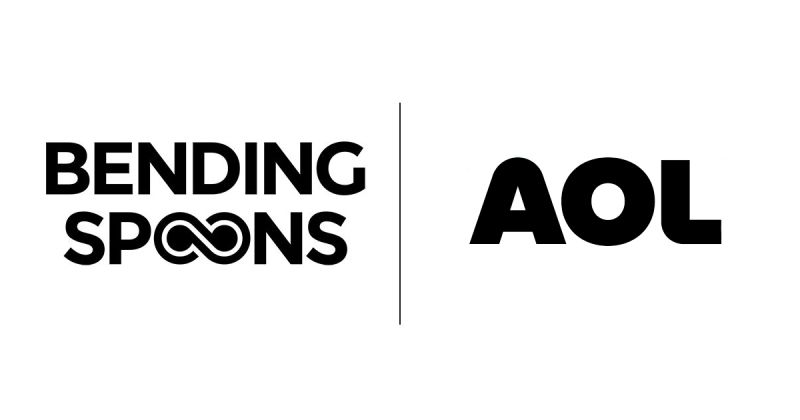Bending Spoons Acquires AOL: A Resurgence for Legacy Platforms

The acquisition of AOL by Bending Spoons exemplifies the inherent value residing in long-standing digital ecosystems. This strategic move highlights how a legacy platform, often considered outdated, can be repurposed as a valuable asset for contemporary technological advancements, particularly in the realm of Artificial Intelligence (AI). AOL’s substantial base of 30 million monthly active users represents an enduring brand and a rich source of data, which Bending Spoons aims to leverage for AI-driven services.
This deal signifies a pivot from solely generating synthetic data for AI learning corpuses. Instead, Bending Spoons is employing a tactic of utilizing established data assets and extensive user bases to accelerate AI personalization, enhance advertising efficiency, and streamline digital identity information gathering. Such integration illustrates how older platforms, which might have been dismissed as mere legacy systems, can become profitable drivers for innovation when combined with modern cloud-native architectures and sophisticated machine learning models.
Bending Spoons has financed its ambitious expansion strategy, including the AOL acquisition, with a significant $2.8 billion debt package from leading global financial institutions such as J.P. Morgan, BNP Paribas, and HSBC. This substantial backing reflects a growing lender confidence in the long-term monetisation potential of data, marking a distinct shift from the 'dot.com' boom and bust era where emphasis and interest were predominantly on purely software products. The AOL acquisition, expected to finalize by year-end, follows Bending Spoons’ proposed purchase of Vimeo. Should both transactions conclude successfully, they will firmly establish the company as a major consolidator of diverse internet assets.

However, the integration of decades-old infrastructure like AOL’s presents considerable implementation and operational challenges. Key among these are the complexities of data migration from legacy email systems, which must strictly adhere to current-day security protocols and stringent compliance requirements. Furthermore, a significant undertaking involves retraining staff for AI data stewardship, especially when dealing with data that has been gathered with the implicit trust of long-term service users. As with any digital acquisition, Bending Spoons’ ultimate success will hinge on its ability to effectively manage both the technical and cultural dimensions of this complex integration. Without robust governance, even the most promising legacy platforms risk transforming into substantial compliance liabilities.
Preparatory work for such an acquisition typically involves comprehensive data lineage mapping, thorough integration and interoperability audits, and extensive governance discussions. It is often observed that many integration pilots encounter difficulties without shared accountability between technology and business functions, as the desire to acquire data often outweighs a clear understanding of its practical business applications, especially when initial insights into its value are limited until the deal is finalized.
In a broader vendor and ecosystem context, Bending Spoons’ acquisition logic aligns with similar strategies observed in the industry. Examples include Microsoft’s integration of LinkedIn data into its Azure AI Foundry and IBM’s initiatives to revitalize legacy data with its watsonx platform. AOL’s extensive customer base and rich behavioral data could hold significant value when combined with cloud analytics, sophisticated customer profiling, and robust identity management frameworks, whether on bespoke solutions or off-the-shelf platforms like AWS Bedrock, Azure, or Google Vertex AI.
From an executive perspective, this acquisition should not be viewed merely as a nostalgic endeavor, but rather as a shrewd, hard-nosed reimagining of a pure data asset. Legacy platforms are far from obsolete; instead, they are often underused and undervalued. The critical differentiator lies in how organizations intelligently integrate this historical data into modern AI governance frameworks and value delivery mechanisms. This suggests that the next wave of competitive advantage may not exclusively arise from constructing entirely new systems, but from skillfully reinterpreting and leveraging older software and information assets that are sometimes disregarded simply for not being the latest innovation.
You may also like...
Bundesliga's New Nigerian Star Shines: Ogundu's Explosive Augsburg Debut!

Nigerian players experienced a weekend of mixed results in the German Bundesliga's 23rd match day. Uchenna Ogundu enjoye...
Capello Unleashes Juventus' Secret Weapon Against Osimhen in UCL Showdown!

Juventus faces an uphill battle against Galatasaray in the UEFA Champions League Round of 16 second leg, needing to over...
Berlinale Shocker: 'Yellow Letters' Takes Golden Bear, 'AnyMart' Director Debuts!

The Berlin Film Festival honored
Shocking Trend: Sudan's 'Lion Cubs' – Child Soldiers Going Viral on TikTok

A joint investigation reveals that child soldiers, dubbed 'lion cubs,' have become viral sensations on TikTok and other ...
Gregory Maqoma's 'Genesis': A Powerful Artistic Call for Healing in South Africa

Gregory Maqoma's new dance-opera, "Genesis: The Beginning and End of Time," has premiered in Cape Town, offering a capti...
Massive Rivian 2026.03 Update Boosts R1 Performance and Utility!

Rivian's latest software update, 2026.03, brings substantial enhancements to its R1S SUV and R1T pickup, broadening perf...
Bitcoin's Dire 29% Drop: VanEck Signals Seller Exhaustion Amid Market Carnage!

Bitcoin has suffered a sharp 29% price drop, but a VanEck report suggests seller exhaustion and a potential market botto...
Crypto Titans Shake-Up: Ripple & Deutsche Bank Partner, XRP Dips, CZ's UAE Bitcoin Mining Role Revealed!

Deutsche Bank is set to adopt Ripple's technology for faster, cheaper cross-border payments, marking a significant insti...